All A Board
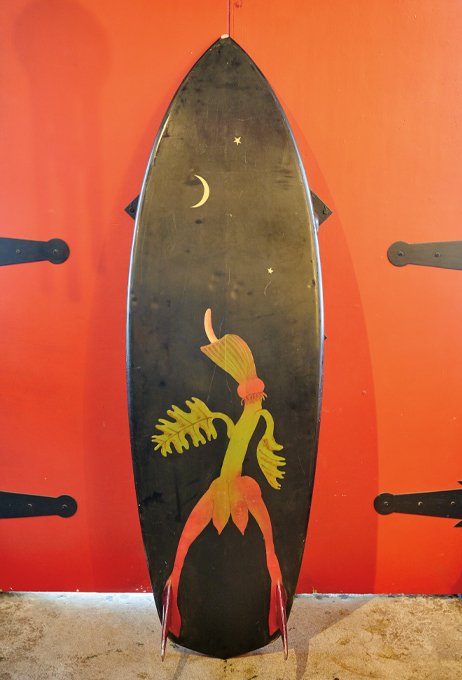
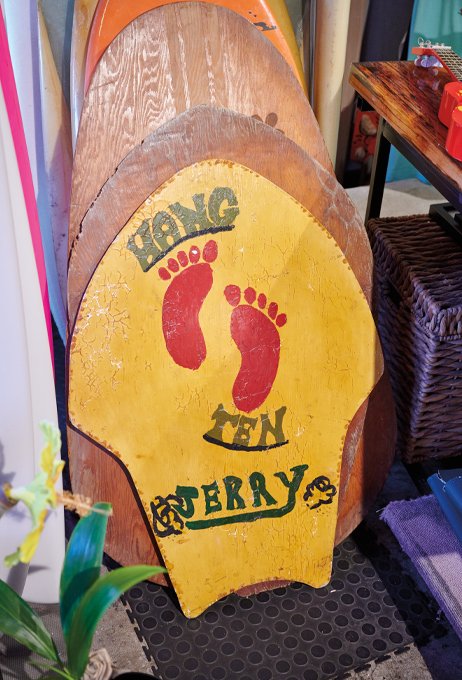
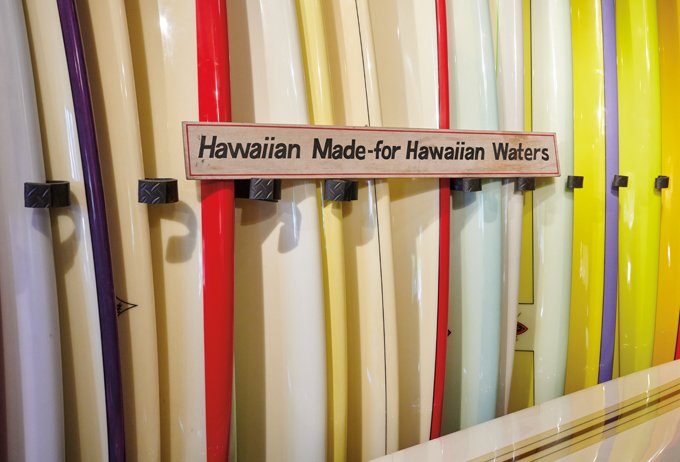
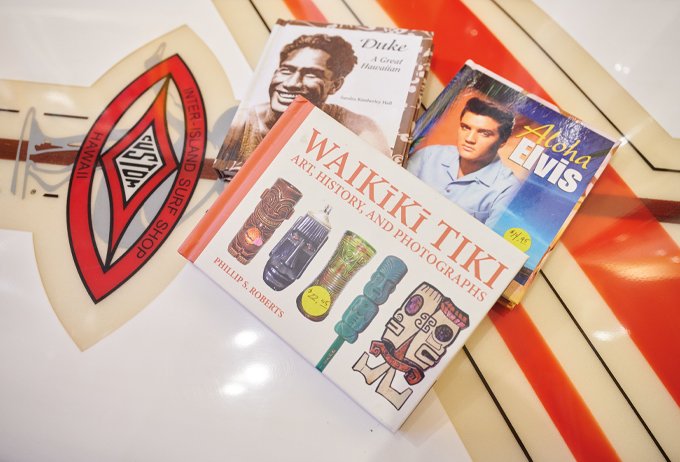
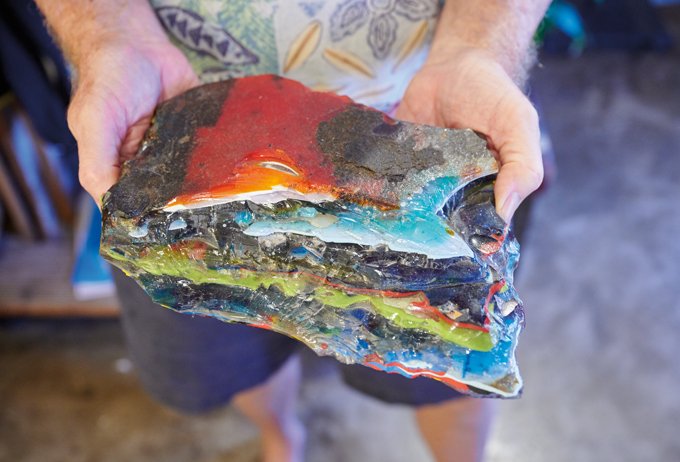
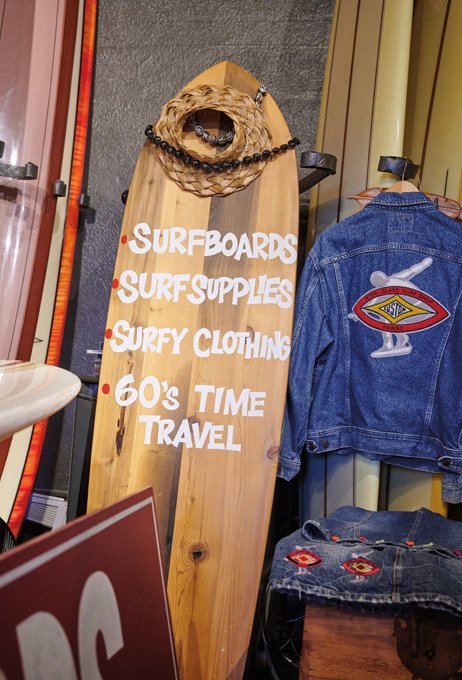
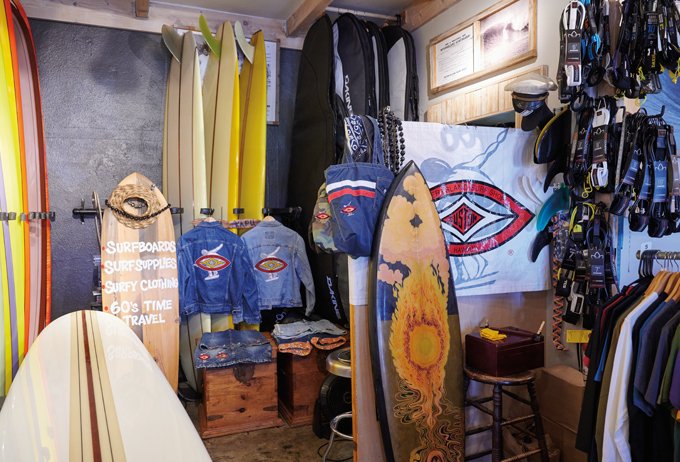
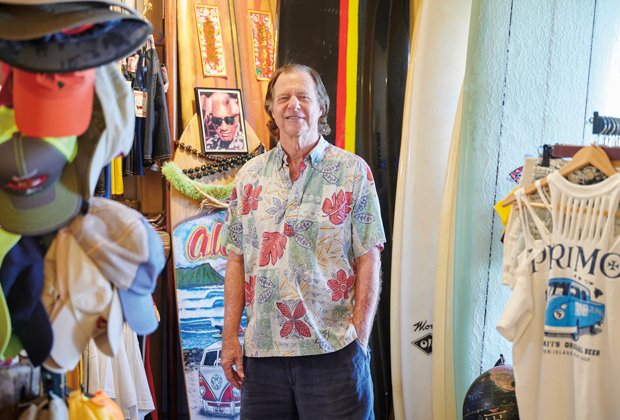
Racked surfboards, vintage photography, and mid-century Hawaii memorabilia line the walls (and much of the ceiling) at Inter-Island Surf Shop in Honolulu. To step through the store’s red-and-black front doors on Kapahulu Avenue is to go back in time to an earlier age of surfing. Of tourists brought over on Matson cruise ships to the just built Royal Hawaiian Hotel in the 1920s and 30s; small paipo bodyboards and the venturesome beach boys of Waikiki in the 1950s; and the resurgence of Hawaiian hula, music, culture and language during the Second Hawaiian Renaissance in the 1970s.
“We seldom get anyone in here under the age of 40,” laughs Inter-Island Surf Shop owner Barry Morrison. “Our regulars are usually in their 60s. We’re all still basking in our high school days.”
Morrison, who was previously a bus driver, carpenter and mortgage banker (“But always a surfer in disguise,”) joined Inter-Island Surf Shop in the mid-1970s. His mentors were Mickey Lake and Kenny “Bones” Johnston, who originally opened the store in 1959 near Aloha Tower. Back then, the little surf shop was located near the old Honolulu Iron Works foundry in Kaka‘ako. Eventually the building—as well as the entire street—was demolished to make way for the present-day Prince Kuhio Federal Building.
“1959 through ’67, that was surfing’s heyday—then, short boards started creeping in, and that changed everything. But the original guys, like ‘Sparky’ Scheufele, they kept rolling. Mickey’s still around; he’s 90. Bones Johnston just turned 88,” Morrison recalls.
Over the years, Morrison built up a collection of surfboards, most of them Inter-Island models. One’s a 10-foot, 6-inch board which was the first designed by local longboard shaper Robert “Sparky” Scheufele in 1968, produced before the popularity of what would become more familiar board styles, such as the Pipe- liner or Trestle Special. Another 10-foot, 6-inch board owned by Morrison features no decals but is marked as being shaped by famed designer Dick Brewer, glassed by board manufacturer and North Shore environmental activist Bosco Burns, for big wave surf pioneer Goodwin Murray “Buzzy” Trent. Trent first gained international recognition in 1953 after being photographed riding a 20-foot wave at
Makaha Beach by Thomas “Scoop” Tsu- zuki in the first widely published images of big wave surfing, which helped catalyze big wave surfing’s popularity today.
Morrison also owns the first patented hydroplane surfboard, invented by John Kelly Jr., whose father, John Kelly Sr., designed the original menu lithographs for the Matson ship cruises in the 1950s. Kelly Jr. was a decorated sailor, Juilliard School alum and one of the earliest to surf waves at Makaha. He traveled to Hiroshima in 1954 to speak out against nuclear weapons, and later, founded a grassroots environmental group that helped save 140 of O‘ahu’s surf sites.
“The prized piece would have to be one board Sparky made for a gentleman who lived in Waikiki from 1959 to 1965, then left to Michigan. I got a call three years ago from the guy’s niece. He’s now 90 years old and moving into a care home, and he told her to call Inter-Island and see if we’d buy his board back,” Morrison says. “I did. It was a great cost to ship, but it’s a beautiful koa piece with red panels, Halo fins and everything.”
According to Morrison, his best finds were from the late 1970s to the early ’90s, when people were putting things outside on the curb on trash night.
“People were selling their homes because the kids had been gone 15 or 20 years. The boards and surf items were unbelievable, I tell you. My collection isn’t vast, it’s mostly assembled by luck,” Morrison says. Then, he adds, with a laugh: “Eventually, I had to stop bringing all this stuff home.”
Luckily, the memorabilia was able to find a new home at Inter-Island Surf Shop, which includes original Pentax film photography and signs by noted surf photographers Tim McCollough and Paul Gebauer. Each image comes with a story, including those from behind-the-scenes.
“Paul [Gebauer] got kicked out of Punahou for not going to school, but he was a prodigy. When he next went to Kaimuki High, he made a deal with the principal and told the teachers, ‘I’m not coming to school but I’ll pass all your tests.’ And he did. This was the ’60s,” Morrison recalls. “I had to find him on Maui to get this photo. He had been out there, surfing and camping on the beach for 40 years.”
Sixty years since opening its doors, Inter-Island Surf Shop continues to be a destination for surfing aficionados.
“There are many groups of folks who gave up surfing for 20-plus years to start a career and have a family, and they’re returning to it, like I did,” Morrison says. “Now, we’re welcoming them back.”
